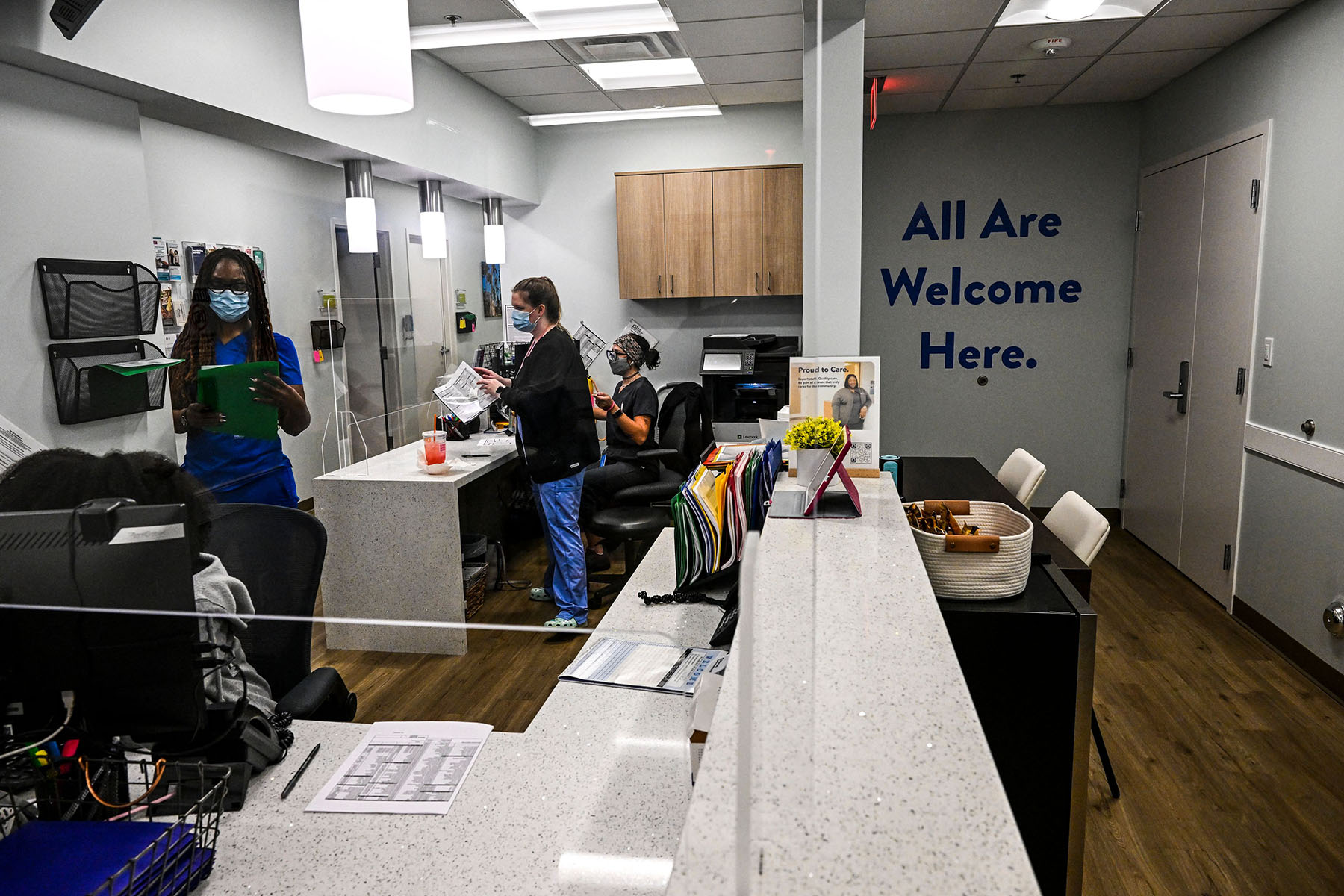New data suggests that a looming six-week abortion ban in Florida — the nation’s third-most populous state — could cut the number of procedures performed there in half.
The analysis released Tuesday, conducted by the Society of Family Planning, was the fourth installment in a series of reports tracking the impact of overturning Roe v. Wade. Researchers tracked abortions performed at clinics across the country in the year following the Supreme Court’s June 2022 ruling that allowed states to ban abortion if they chose.
Three states have enforced six-week bans on abortion since then: Ohio, South Carolina and Georgia, where a ban took effect in July 2022 and was upheld Tuesday by the state Supreme Court. The South Carolina and Ohio bans were enforced for only two months during the study period. (Ohio’s Supreme Court is currently deciding whether to let that ban take effect again. South Carolina’s was struck down by its state Supreme Court, but a new version was passed this spring and took effect in August, after the study period ended.)
In the states with six-week bans, clinicians cumulatively performed about 19,660 fewer abortions over the past year, per the data. That suggests around a 50 percent decrease in the number of abortions performed in those states when bans were in effect, researchers said.
-
More On The Proposed Ban:
-
More On The Proposed Ban: A proposed six-week abortion ban in Florida could threaten access for the entire South
The data could be predictive for Florida, where the state Supreme Court is currently deciding whether to uphold the state’s 15-week abortion ban, a law currently in effect. If that law is upheld, a more recently passed six-week ban would take effect one month later.
Florida, the data shows, experienced the second-largest increase in abortions in the year since Roe was overturned, with 20,460 more procedures taking place than the year before. That jump, the researchers said, is the result of people traveling to Florida for care after abortion was banned in their home states, despite the state’s own enforcement of a 15-week ban. Given the impact of six-week bans demonstrated by the data, enforcing one in Florida could have outsized implications.
Study researchers noted that the number of patients who received abortions in states with six-week bans suggested a dramatic change in behavior compared with before Roe was overturned, since people often do not know they are pregnant before the six-week mark.
“When there is a six-week ban, clinics really expand access as much as possible and patients rush in as fast as possible,” said Alison Norris, a professor at Ohio State University’s College of Public Health, and a co-chair of the team that performed the analysis.
But that kind of mobilization might not be possible in a state the size of Florida.
“What we could expect to see in Florida is a very chaotic situation,” Norris said. “There will similarly, I’m sure, be an attempt to accommodate people before six weeks, but the pressure will be enormous.”
Nationwide, the data shows that the number of abortions changed little in the year since Roe fell. Across the country, about 2,200 more terminations were performed than in a comparable timeframe a year ago. Those numbers, researchers said, indicate just how many Americans have traveled from their home state to receive care. The number of abortions in states with bans fell by about 115,000 in the 12-month span the data tracks. In states where abortion was protected, the number of procedures increased by about 117,000.
Still, the researchers said, the data likely underestimates the extent to which abortion access has and will continue to decline.
The increase in abortion-seeking patients in states where abortion remains legal is likely untenable, said Megan Jeyifo, who runs the Chicago Abortion Fund. Illinois experienced the largest raw increase in abortions in the country, recording 21,500 more abortions in the study’s 12-month period.
“What we’re doing is not sustainable for anyone,” she said. “I don’t know how more vehemently I can say that.”
The data also does not reflect that Texas, the nation’s second-most populous state, had already begun to enforce a six-week abortion ban in September 2021, close to 10 months before Roe v. Wade was officially overturned. The total count of abortions in America had also been growing before June 2022, meaning it is difficult to tell how much larger the increase might have been had Roe been upheld.
The 12-month span tracked in the data also does not reflect more recently enforced abortion bans — including those in North and South Carolina and Indiana. As those laws take effect, the North Carolina ban in particular — which cuts off access at 12 weeks and requires patients to make two in-person visits to a clinic, separated by 72 hours — will likely make it harder to travel for care, researchers said. Separate research shows that abortions in the state dropped 30 percent after July 1, when that law took effect. The Society for Family Planning data shows that North Carolina experienced the third-largest increase in abortions after Roe was overturned.








